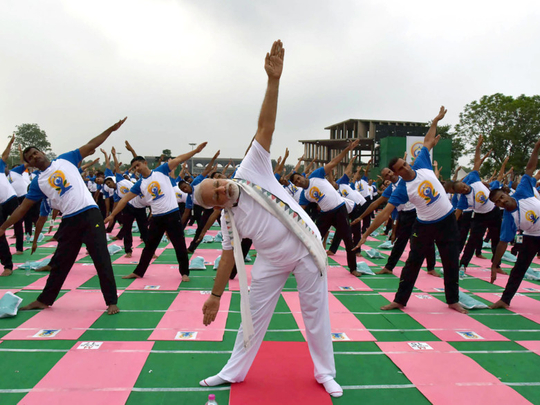
New Delhi — The yoga enthusiast and Indian prime minister Narendra Modi has become an instructor, releasing a cartoon video of himself demonstrating different poses.
The videos, published on Modi’s official YouTube page and heavily promoted by members of his party on social media, depict a 3D-cartoon of the Indian leader practising poses such as the ‘tadasana’ and the ‘trikosana’.
Modi has made yoga a key part of India’s global outreach, convincing the United Nations to establish 21 June as International Yoga Day and leading thousands of people in yoga demonstrations each year.
He cites the discipline, rooted in ancient Indian religious traditions, as key to his own health, claiming to sleep as little as four hours each day, drawing energy from rigorous daily yoga and deep-breathing exercises.
Modi used his monthly radio address to introduce the videos, which he said were created by his young supporters.
The Hindu nationalist leader created a yoga ministry soon after his election in 2014 and made yoga practice compulsory in some schools.
But his promotion of the discipline has not been without controversy. In 2015, Indian Muslim groups accused the government of pushing “Hindu religious practices” and objected to official guidelines that instructed International Yoga Day participants to chant “Om”, a mantra in Hinduism and other dharmic religions.
The government agreed to drop one popular routine, the surya namaskar, or sun salutation, after some Muslim leaders complained it involved worshipping the sun, contrary to Islamic principles.
Parents in the US state of California sued San Diego state schools in 2015, arguing the inclusion of yoga in the curriculum breached the country’s first amendment by pushing Hinduism on Christian students. The court ruled against them.
In 2008, Islamic authorities in Malaysia issued a fatwa banning yoga for similar reasons.
Yoga has surged in popularity in the west since the 1980s, with about 36.7 million practitioners in the US in 2016, up from 20.4 million in 2012. The market is worth about $16bn (Dh58.76 billion) in the US, and $80bn globally.












